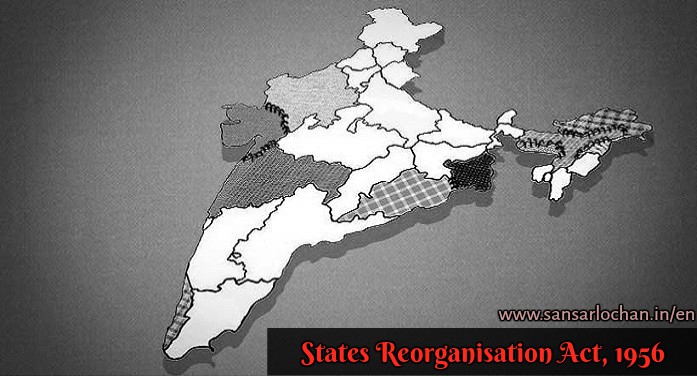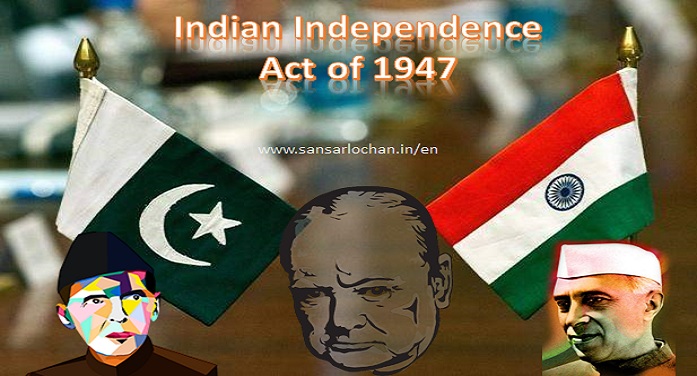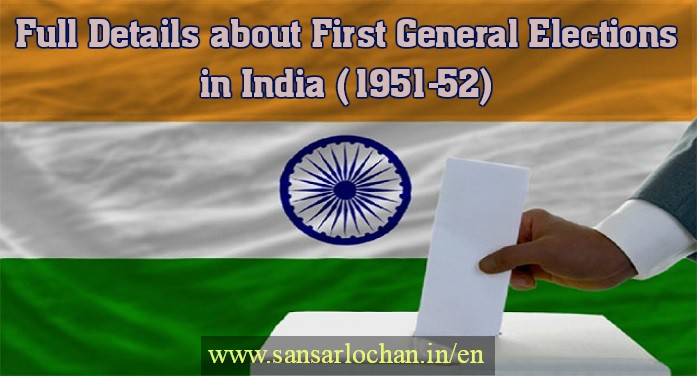Which ruler of medieval Gujarat surrendered Diu to Portuguese? The ruler of medieval Gujarat who surrendered Diu to the Portuguese was Sultan Bahadur Shah of the Gujarat Sultanate. Diu, a strategically located island and port, was under the control of the Gujarat Sultanate at that time. In 1535, Sultan Bahadur Shah faced a military confrontation with the Portuguese, led by … Read More
[Explained] Solar Energy – Thermal Solar Power and Solar Photovoltaic
Solar energy is an important source of non-conventional energy. Sun is the main source of energy for all the living beings. Man is using the solar energy in different ways since ancient times. It is cheap, widely available, renewable, inexhaustible, eco-friendly and sustainable source of energy. It is now being used from many purposes such as, water heating, space heating, … Read More
States Reorganisation Act, 1956 : Rationale and Features
Due to accession of Princely States and due to the then haphazard forms of British India territories, need was felt later to re-organise the entire country in a more reasonable and popularly acceptable states and union territories. In order to address this need, a State Reorganisation Committee was constituted in December 1953, with Justice Fazl Ali, K.M. Panikkar and Hridayanath … Read More
A Brief Note on Indian Independence Act of 1947 and its Provisions
The Indian Independence Act of 1947 was the last legislation of the British Parliament with the intent of creating independent India. Here through this article we are providing you a short note on 1947 Independence Act as well as a list of its provisions. Introduction The Government of India Act 1935 failed to satisfy the Indian demands. In 1939 the … Read More
Town Planning of Indus Valley Civilization : Salient Features
Town planning is the unique feature of Indus valley civilization. Their town planning proves that they lived a highly civilized and developed life. Indus people were the first to build planned cities with scientific drainage system. The Indus cities were built on an uniform plan. Town planning was amazing in nature. A few cities have citadels to the West built … Read More
Full Details about First General Elections in India (1951-52)
First General Elections in India (1951-52) India became a Sovereign Democratic Republic with the adoption of Constitution on 26th January, 1950. General elections to the first Lok Sabha as well as state assemblies were held from October 1951 to February 1952, on the basis of universal adult franchise. Thus India, with a far greater population than that of the USA, … Read More
Very Short Note on Independence and Partition, Source NCERT
I am making a very short note on Independence and Partition of India with the help of NCERT History Books. Hope you will like it. So here is the story:- Independence and Partition After the second world war, the Labour Party came to power in England and Clement Atlee became the Prime Minister. He deputed a commission to India in … Read More
The Period of the Moderates and the Extremists 1885-1920
The Period of the Moderates 1885-1905 From 1885 to 1905 the Indian National Congress was led by Dadabhai Naoroji, Pherozshah Mehta, Badruddin Tyabji, Anandacharalu, Surendranath Banerjee, Gopal Krishna Gokhle etc. They expressed loyalty to the British and believed in the British benevolence. They intended to pressurize the British Government through Prayers, Petitions and Protests. They organized public meetings, submitted memorandums … Read More
Important Characteristic Features of Chalukyan Architecture
The Chalukyas of Badami have made marvelous contributions to Indian Art and Architecture. Building of Stambha Mandapa (Navaranga) and Sukhanasi along with the Garbhagriha was a unique contribution of the Chalukyas. They built many temples following the Nagara or North Indian Style and Dravida or South Indian style. They built their temples using red sandstone. They experimented many things in … Read More


